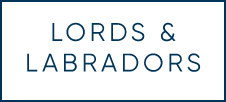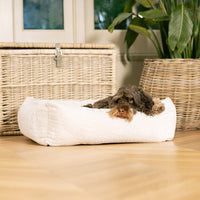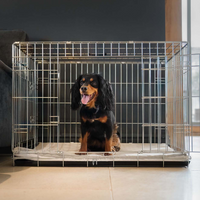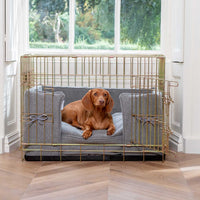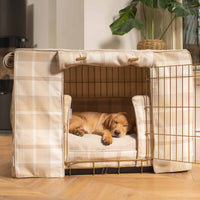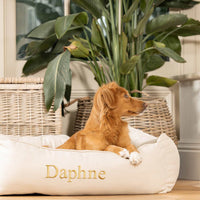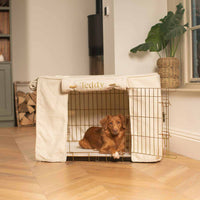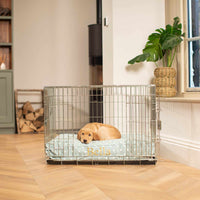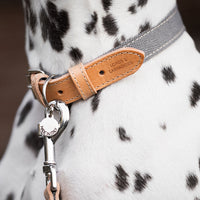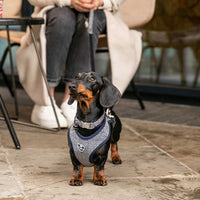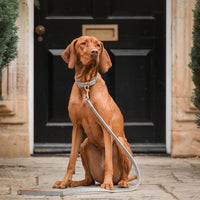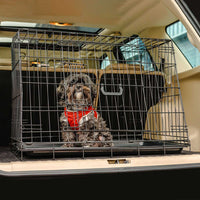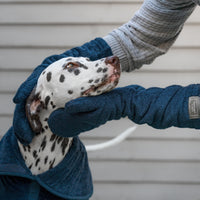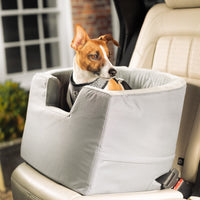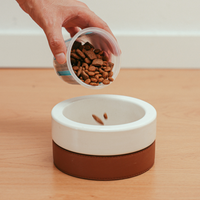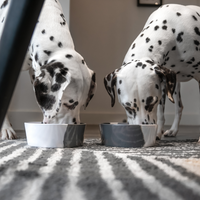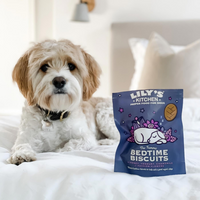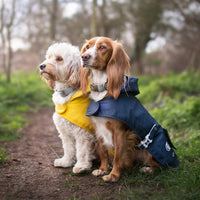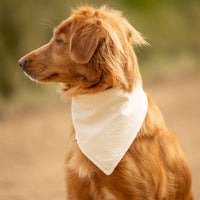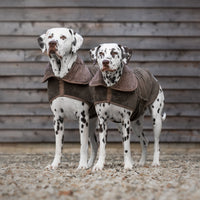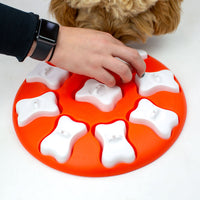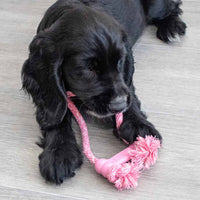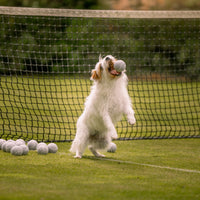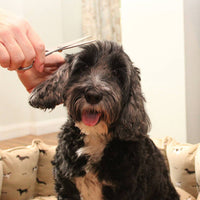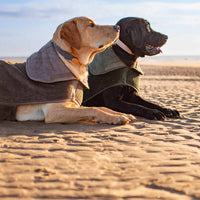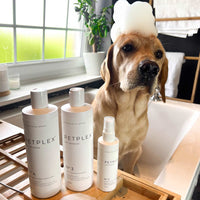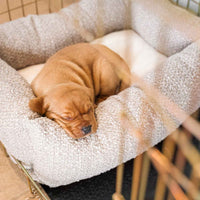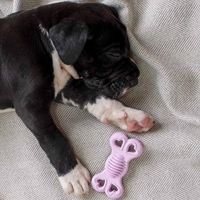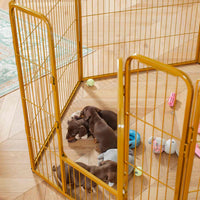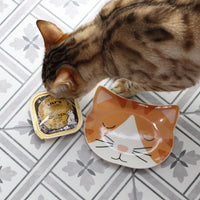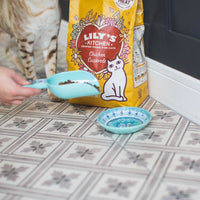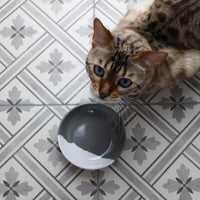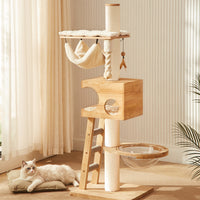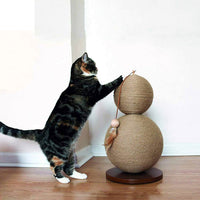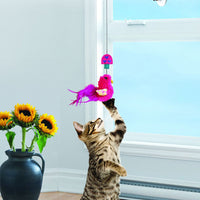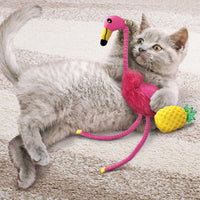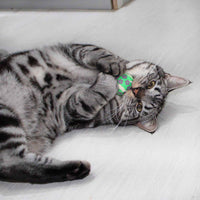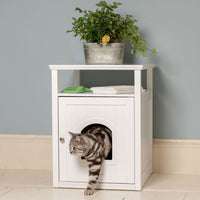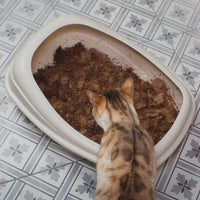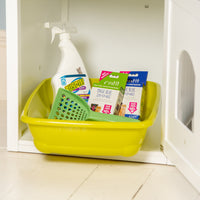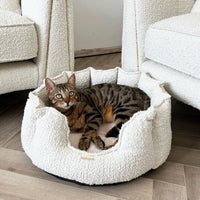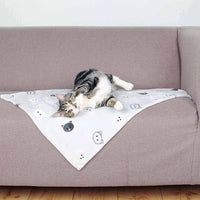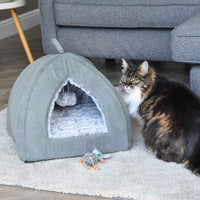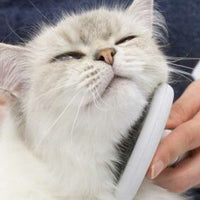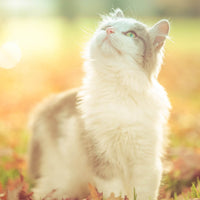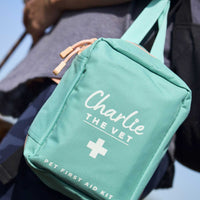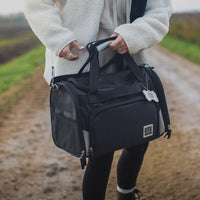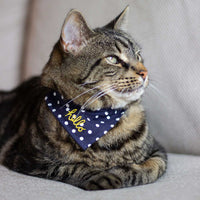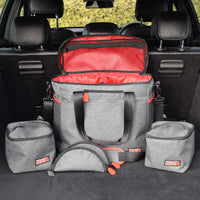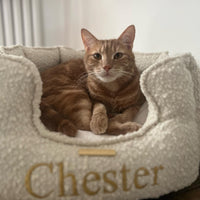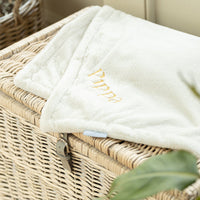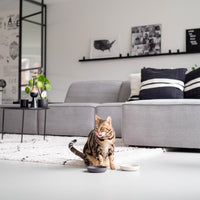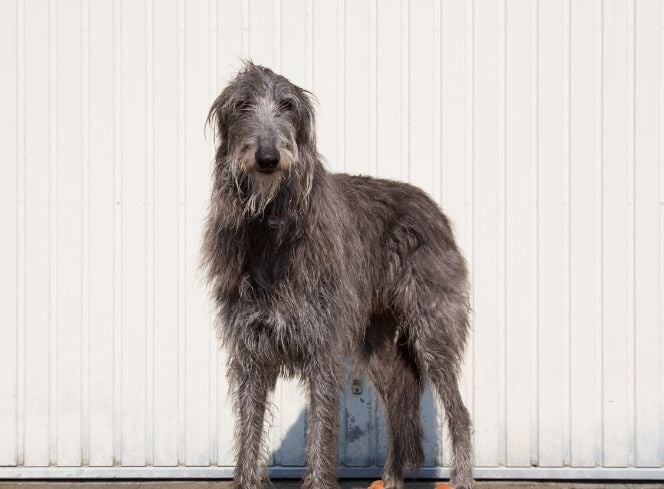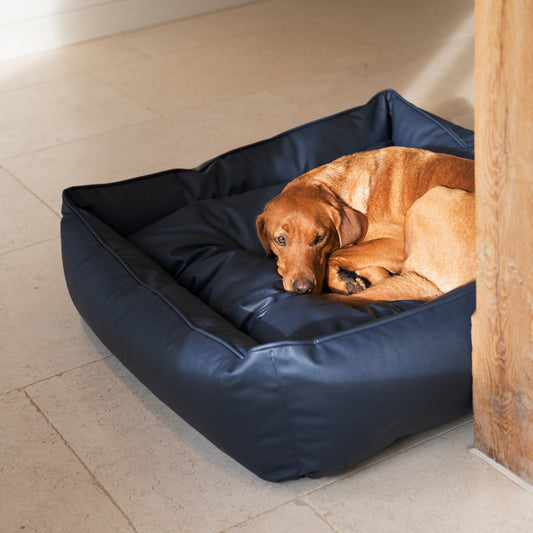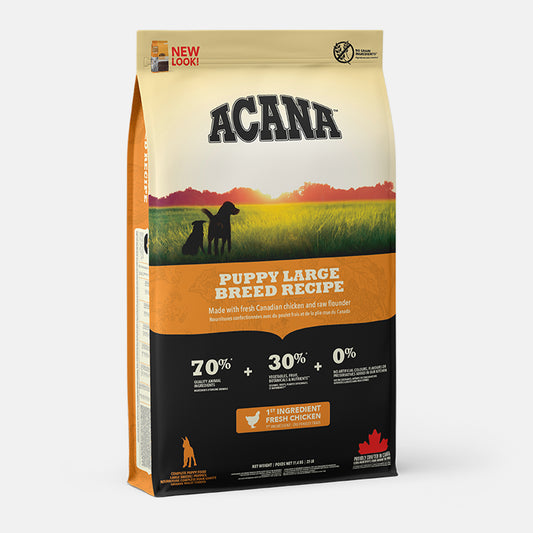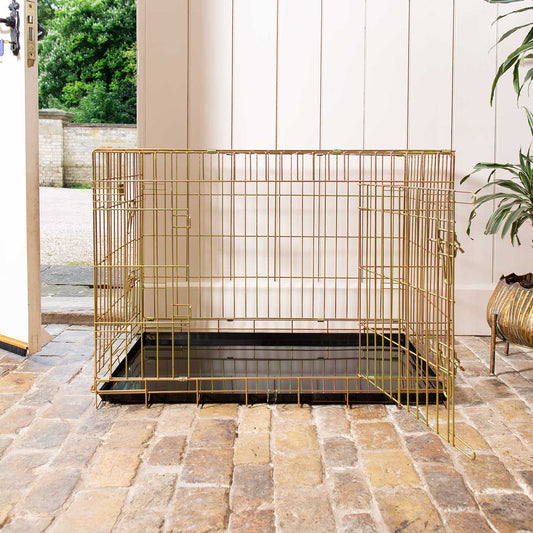Welcome to the ultimate guide on Deerhounds! If you're considering adding a Deerhound to your family or already have one, you're in for a delightful journey. These majestic creatures are known for their grace, loyalty, and gentle nature. In this comprehensive guide, we'll delve into the various aspects of Deerhound ownership, from their personality and traits to health concerns, training tips, dietary needs, grooming requirements, and more.
Deerhound Fact file
| Kennel Club Breed Group | Hounds |
| Size | Large |
| Weight | 34-50kg |
| Daily Exercise | 2+ Hours |
| Coat Type | Wiry medium length |
| Coat Colours | Black & Grey, Blue Brindle, Blue Grey, Brindle, Dark Brindle, Dark Grey, Grey, Grey Brindle |
| Lifespan | 10+ years |
Deerhound Personality and Traits

Deerhounds are a breed steeped in history and renowned for their noble demeanour. They possess a gentle and affectionate disposition, making them wonderful companions for families and individuals alike. Here are some key personality traits of Deerhounds:
- Gentle Giants: Deerhounds are large yet remarkably gentle dogs. Despite their size, they are known for their calm and composed demeanour, making them excellent pets for households with children.
- Loyal Companions: These dogs form strong bonds with their families and thrive on companionship. They are known for their unwavering loyalty and devotion to their owners.
- Independent Thinkers: While Deerhounds are intelligent, they can also exhibit a streak of independence. This trait requires patient and consistent training to channel their intelligence effectively.
- Sighthounds: As sighthounds, Deerhounds have a keen instinct for chasing prey. While they may have a strong prey drive, proper training and socialisation can help manage this behaviour effectively.
Deerhound Health Issues
Like all breeds, Deerhounds are prone to certain health issues. It's essential for prospective owners to be aware of these conditions and take proactive measures to maintain their pet's well-being. Common health issues in Deerhounds include:
- Gastric Torsion (Bloat): Deerhounds, like many deep-chested breeds, are susceptible to gastric torsion, a life-threatening condition where the stomach twists upon itself.
- Heart Disease: Dilated cardiomyopathy (DCM) is a concern in Deerhounds
- Bone and Joint Issues: Large breeds like Deerhounds may be prone to conditions such as hip dysplasia and osteoarthritis.
Regular vet visits, a nutritious diet, and maintaining an active lifestyle are key components of ensuring the overall health and well-being of your Deerhound.
Raising a Deerhound
Raising a Deerhound requires patience, consistency, and plenty of love. Whether you're welcoming a Deerhound puppy into your home or adopting an adult, here are some tips for providing the best care:
- Obedience Training: Start obedience training early to establish boundaries and reinforce desirable behaviours. Positive reinforcement techniques, such as treats and praise, work well with Deerhounds. Their strong prey-drive means they will respond well to working or training for food, try using some of their food as a reward and giving them some every time they display a positive behaviour for the first couple of weeks - this will really help their training!
- Socialisation: Introduce your Deerhound to various people, animals, and environments to help them develop into well-adjusted adults. Our top tip is start introducing them to lots of different things, places and people from a young age, it will really help their confidence.
- Consistency: Deerhounds respond best to consistent training methods and clear communication from their owners. Before picking your Deerhound puppy up it’s a good idea to think about the boundaries and training you want to put in place for them so you can hit the ground running
Deerhound House Training
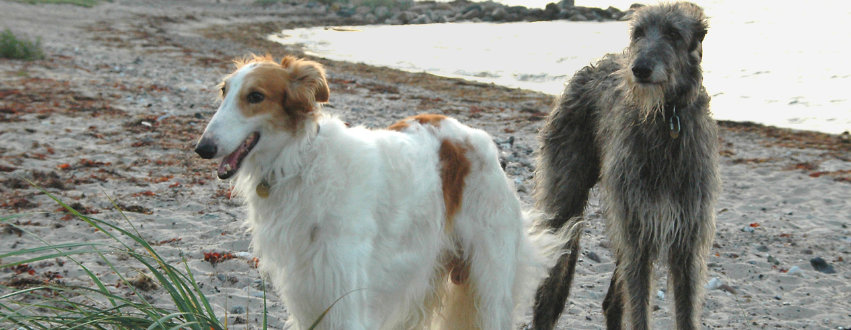
- Consistency: Establish a regular schedule for feeding, bathroom breaks, and playtime to help your Deerhound understand expectations. We recommend taking them outside every hour for the first few days and staying outside until they have relieved themselves and then rewarding them for doing so to help teach them expectations
- Positive Reinforcement: Reward your Deerhound with praise and treats when they go to the toilet outside, this will help them to associate going outside with positive emotions and means they’re much more likely to keep going outside.
- Patience: House training takes time and patience. Be consistent and avoid punishment for accident, they’re much more likely to respond to a positive reaction when they do something right.
Crate Training a Deerhound Puppy
By nature your Deerhound puppy, as with all dogs, is a den animal - meaning their natural instinct is to sleep and rest in a small enclose den space. By providing your Deerhound puppy with a crate you are giving them this den to retreat to, it can really help to settle them and make them more comfortable in their new home. Here at Lords & Labradors crates and crate bedding is our speciality - we’ve put our crate training must haves below to help you make the perfect puppy crate.
Crate Training Shopping List
- Deluxe Dog Crate - Our deluxe dog crates come in three colours, gold, silver and black. We’d recommend an XXL crate for a Deerhound
- Puppy Crate Bed - Make their crate inviting with a comfy bed; we developed our Cosy & Calming Puppy Crate Beds for this exact purpose. They fill half of the crate and are designed to cocoon your puppy to sleep. They come in all of our most popular fabrics so there’s sure to be one your puppy will love
- Puppy Pads or Vet Bed - Your puppy won’t be able to hold their bladder through the night at first, encourage them not to go on their bed by giving them space to go with a puppy pad or a piece of vet bed
- Comforter or blanket - It will be a big adjustment for your puppy to go from sleeping with their mum and litter every night to sleeping on their own so it’s worth giving them something such as a scent blanket which smells of their mum or a heartbeat sheep which replicates their mums heartbeat to help settle in them first few nights!
Crate training top tips
- Safe Haven: Introduce the crate as a safe and comfortable space for your Deerhound puppy. Make it cosy with blankets and toys.
- Gradual Introduction: Gradually introduce your puppy to the crate, starting with short periods and gradually increasing the duration.
- Positive Association: Associate the crate with positive experiences, such as meals and quiet rest time.
If you want to know more about crate training check out our Ultimate Crate Training Guide, our Pet Experts have put together their top tips and tricks for successfully crate training your puppy.
Deerhound Dietary Needs
A well-balanced diet is essential for the health and vitality of your Deerhound. Consider the following factors when selecting food for your pet:
- Nutritional Requirements: Choose a high-quality dog food formulated for large breeds. Ensure it provides essential nutrients, including protein, carbohydrates, fats, vitamins, and minerals.
- Avoid Overfeeding: Deerhounds can be prone to obesity, which can exacerbate joint issues. Monitor portion sizes and avoid overfeeding.
- Hydration: Provide access to fresh water at all times, especially during hot weather and after exercise.
For both puppies and adult Deerhounds we recommend looking at really high quality brands who prioritise a protein rich formula, for this we particularly love brands such as Orijen, Acana and Carnilove.
How Much Exercise Does A Deerhound Need?
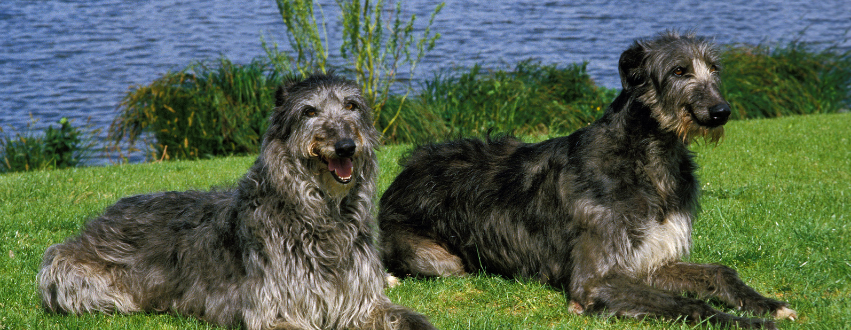
Deerhounds are active dogs that require regular exercise to stay healthy and happy. However, their exercise needs may vary based on age, health, and individual preferences. As a general guideline:
Adult Deerhounds
Aim for at least one hour of moderate to vigorous exercise per day but preferably around 2 hours. This can include brisk walks, runs in a secure area, and interactive play sessions.
Puppies and Seniors
Adjust exercise routines to accommodate the age and energy levels of your Deerhound. Puppies may require shorter, more frequent bursts of activity with plenty of interactive activities to stimulate them and a gradual buildup of walking time to help their bones and joints to develop properly. While seniors may prefer leisurely walks and gentle play in their older age.
Best Walking Accessories For A Deerhound
When taking your Deerhound for walks, consider investing in the following accessories to enhance comfort and safety:
- Collar and Lead: Choose a sturdy collar and lead combination that provides control without restricting movement. We recommend looking at our padded leather collar and lead sets, the padding in the collars is super comfy for your deerhounds neck, whilst the lead is sturdy and durable due to the fine, Italian leather that they have been crafted in.
- Harness: If you have a puppy or your Deerhound pulls a lot, a harness can distribute pressure more evenly across your their body, reducing strain on the neck and preventing injuries. We particularly love the Ruffwear Front Range harnesses for big dogs like Deerhounds, they have a strong construction and are adjustable at both the neck and chest so you can get the perfect fit for you dog.
Best Toys For Deerhound
Deerhounds enjoy a variety of toys that cater to their instincts and preferences. Consider the following options when selecting toys for your pet:
- Chew Toys: Provide durable chew toys to satisfy your Deerhound's natural urge to chew and prevent destructive behaviour. If your Deerhound is a chewer look at both the KONG extreme range and the GiGwi duraspikes range which have been designed with chewers in mind
- Interactive Toys: Puzzle toys and treat dispensers can engage your Deerhound's mind and provide mental stimulation. We love the Nina Ottosson range for some really fun interactive toys
- Soft Toys: Plush toys can offer comfort and companionship, especially for Deerhounds that enjoy cuddling. The KONG cozies are both cute and cuddly!
Best Beds For Deerhounds
Give your Deerhound the gift of sleep with one of our luxury dog beds. Our Rhino Tough range is perfect for them, the beds come in a large range of sizes and colours. They are stuffed with deep-hollow fibre so are supportive for your Deerhound’s joints, and they come in our 3 most popular bed shapes so your Deerhound can get really comfy however they sleep.
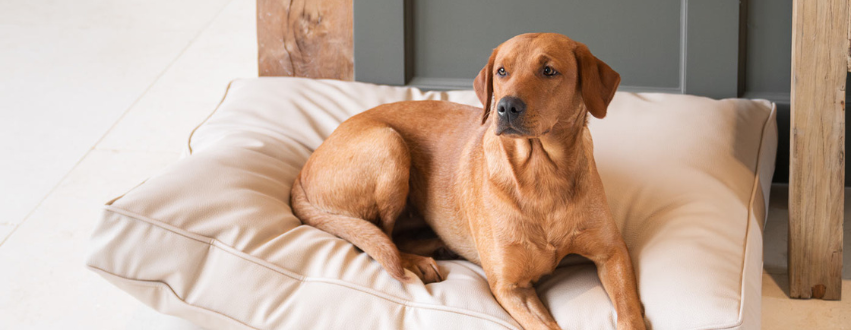
Deerhound Grooming Tips and Best Grooming Products
While Deerhounds have a relatively low-maintenance coat, regular grooming is still essential to keep them looking and feeling their best. Here are some grooming tips and recommended products:
- Brushing: Use a soft-bristled brush to remove loose hair and prevent matting. Brush your Deerhound's coat at least once a week to keep it clean and healthy.
- Bathing: Bathe your Deerhound as needed, using a mild dog shampoo to avoid stripping natural oils from the skin. The PetPlex Dirt Defeater shampoo and conditioner is both gentle on their coat and smells like tropical fruits, it’s our go-to for washing our dogs with.
- Nail Trimming: Keep your Deerhound's nails trimmed to prevent overgrowth and discomfort. Use a quality nail trimmer designed for dogs.
- Ear Care: Check your Deerhound's ears regularly for signs of infection or irritation. Clean them gently with a veterinarian-approved ear cleaner.
In conclusion, Deerhounds are magnificent creatures that bring joy, companionship, and grace to any household. They are gentle giants so make great family pets and are super easy to love. Looking to shop for your Deerhound? Then look no further than our Deerhound shop, we’ve carefully curated our top picks for your Sighthound to make shopping for them easy - shop here.
